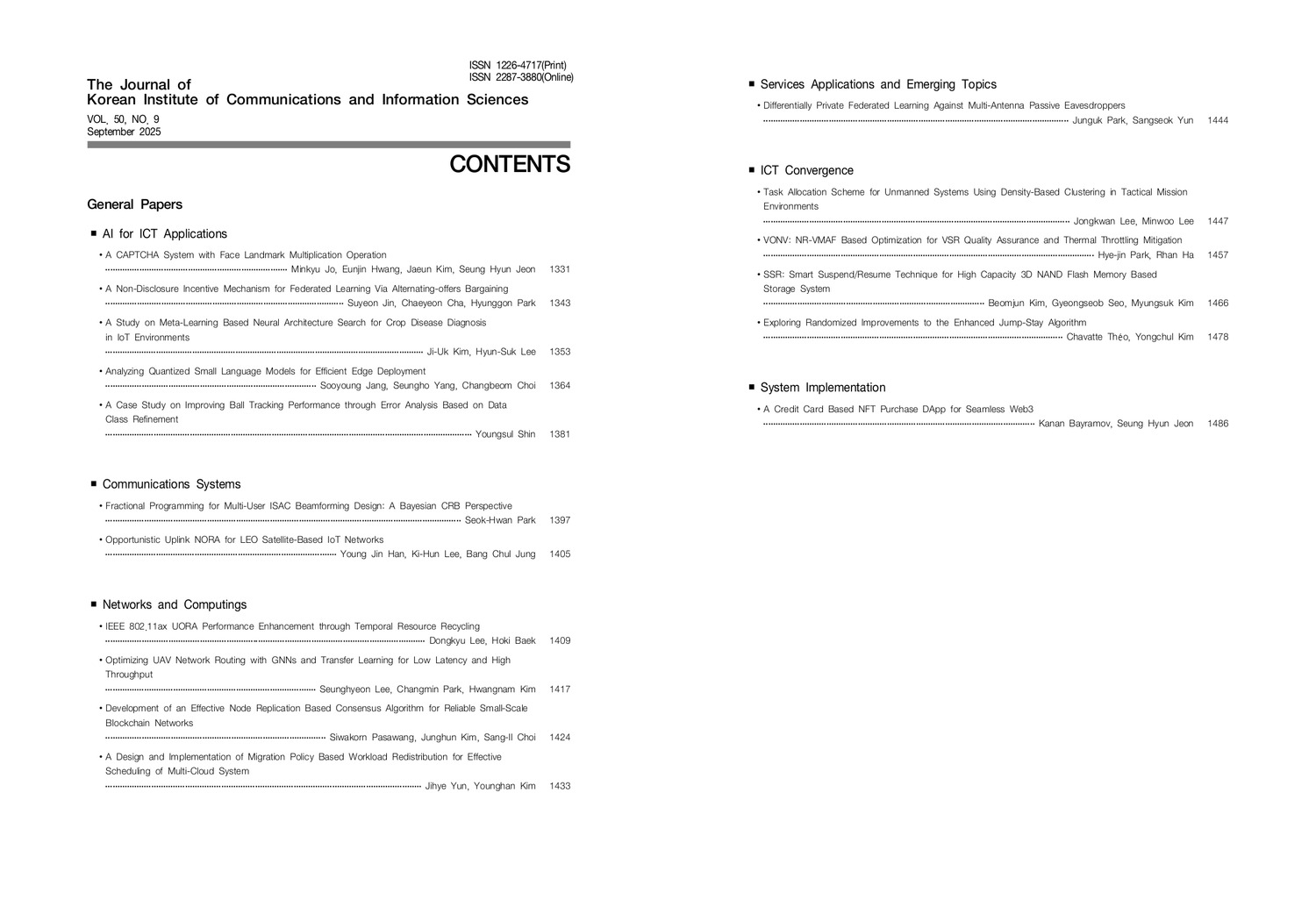Opportunistic Uplink NORA for LEO Satellite-Based IoT Networks
Vol. 50, No. 9, pp. 1405-1408, Sep. 2025
 10.7840/kics.2025.50.9.1405
10.7840/kics.2025.50.9.1405
-
low-earth orbit (LEO) satellite IoT Network non-orthogonal random access (NORA) opportunistic Transmission
PDF Full-Text
Abstract
Statistics
Cumulative Counts from November, 2022
Multiple requests among the same browser session are counted as one view. If you mouse over a chart, the values of data points will be shown.
Multiple requests among the same browser session are counted as one view. If you mouse over a chart, the values of data points will be shown.
|
|
Cite this article
[IEEE Style]
Y. J. Han, K. Lee, B. C. Jung, "Opportunistic Uplink NORA for LEO Satellite-Based IoT Networks," The Journal of Korean Institute of Communications and Information Sciences, vol. 50, no. 9, pp. 1405-1408, 2025. DOI: 10.7840/kics.2025.50.9.1405.
[ACM Style]
Young Jin Han, Ki-Hun Lee, and Bang Chul Jung. 2025. Opportunistic Uplink NORA for LEO Satellite-Based IoT Networks. The Journal of Korean Institute of Communications and Information Sciences, 50, 9, (2025), 1405-1408. DOI: 10.7840/kics.2025.50.9.1405.
[KICS Style]
Young Jin Han, Ki-Hun Lee, Bang Chul Jung, "Opportunistic Uplink NORA for LEO Satellite-Based IoT Networks," The Journal of Korean Institute of Communications and Information Sciences, vol. 50, no. 9, pp. 1405-1408, 9. 2025. (https://doi.org/10.7840/kics.2025.50.9.1405)
Vol. 50, No. 9 Index



